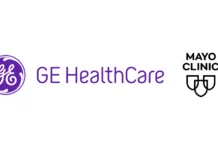One of the fundamental challenges the Global healthcare Industry faces is in reducing costs and providing a better baseline quality of care for most of the World’s population. While billions continue to be spent in the developed world on the discovery of newer and better diagnostic tests, medicines and treatment options for a multitude of diseases the problem of giving better access to quality healthcare to the vast majority has remained an elusive dream.

Dr.Sumanth Raman is a Medical Specialist with an M.D.in Internal Medicine. He has been in the field of Healthcare IT for over a decade.He is currently Advisor-Lifesciences & Healthcare Practice and is Head-Healthcare Innovation, Tata Consultancy Services and is based at Chennai. He is a well known contributor to several National and International Publications on topics related to Healthcare Management and Information Technology in Healthcare. He is an invited speaker at several International and National Seminars on the subject. He can be reached at sumanth.raman@tcs.com
One of the fundamental challenges the Global healthcare Industry faces is in reducing costs and providing a better baseline quality of care for most of the World’s population. While billions continue to be spent in the developed world on the discovery of newer and better diagnostic tests, medicines and treatment options for a multitude of diseases the problem of giving better access to quality healthcare to the vast majority has remained an elusive dream.
The key problem in solving this problem has been the fundamental equation that determines Healthcare delivery globally. What is good for the patient is not good for the doctor or Hospital and unless there is an alignment between the goals of the patient and the Hospital solving issues of cost and access will continue to remain a challenge.
Today, Hospitals and doctors are paid to treat illnesses and not for maintaining Health of populations. The growth in revenue to Hospitals comes from increased disease burdens not from less. It is in the Hospitals interest that there are more sick people, not fewer. The longer a patient stays in the Hospital the better it is for the Institution financially. The more the number of tests done the greater is the monetary benefit. So disease becomes the reason for the existence and financial well being of the Hospital or doctor and it is but natural they look forward to more of it. When a hospital brings out glossy advertisements wishing you good health you know that they don’t mean it literally. If we all had good health they would be out of business. The Preventive Health screening programs and Health check ups are a means of creating newer revenue streams from asymptomatic people that can then help bring them into the mainline disease treatment side of the operations. In effect Hospitals are not Healthcare Centers but Disease Treatment Centers.
The patient and his healthcare provider are effectively working at cross purposes and it is only the stringent regulation and legislation in the developed world that has helped evolve a system where there is at least some pressure on delivering satisfactory outcomes even if at a substantial financial cost. In most developing countries there are hardly any systems in place to ensure standards of care are met and the Governments are so burdened in merely “getting a person in a white coat” to be available to the patients that quality and outcome analysis are not yet priorities.
Is it possible for the goals of the healthcare providers and patients to be aligned? Can this help transform the quality of healthcare delivery? Several models have been mooted in the past and it is worth looking at some of them again. Can people be assigned to specific physicians and Hospitals as their Care provider and the Hospitals then be paid for maintaining the Health of these patients and not just for treating diseases? For example if a Hospital had in its referral population pool 100,000 people then the compensation to the Hospital from the State or Insurance Companies could be on the basis of keeping the incidence of key diseases in this population group below a threshold level. Hospitals could also be paid on the basis of outcomes and not diagnoses and treatment procedures. There would be fudging of statistics of course but eventually this would be a more manageable problem. At least there would be some incentive in the system for the Hospital and the doctor to promote health and keep people healthy.
Paying Hospitals for outcomes rather than procedures is another way of getting the Medical community to focus on doing what is in the patients’ interest rather than their own. For instance if a Hospital was to be paid a sum for treating a Cardiac patient and this payment was to be linked to measurable outcomes in terms of morbidity (symptom relief and quality of life indices) and mortality and not just on the tests or surgeries done there would be a strong incentive to just do the right thing and not build a case for expensive procedures and treatment options. With outcome based compensation almost unheard of in the developing world and in many parts of the Western world too, it is an option that surely appears to be worth trying.
A third more radical option would be to try to bypass the Medical Industry in the initial process of Healthcare Delivery using expert systems to help in the screening of populations. Only those who are identified to have specific organic illnesses would then pass to the Medical Community for treatment. With newer Expert systems coming to the fore this could prove to be an option that holds great promise especially as it is a model that is replicable on a mass scale. Potentially the best screening tools available in the world could then be made accessible to a villager in the remotest corners of say, Africa which may in effect be a better option than the poorly trained and overburdened general practitioner he or she may have access to.
Whatever be the model looked at it is time that the Healthcare Industry starts to take a hard look at itself and explore alternate models of quality care delivery. Out of reach for the vast majority of the World, inaccessible for most of the universe, the Industry has the option of voluntarily participating in the change before change is thrust on it. After all how long can the industry operate on the famous catch phrase of “Kill him if you will, but please, please bill him.”



















